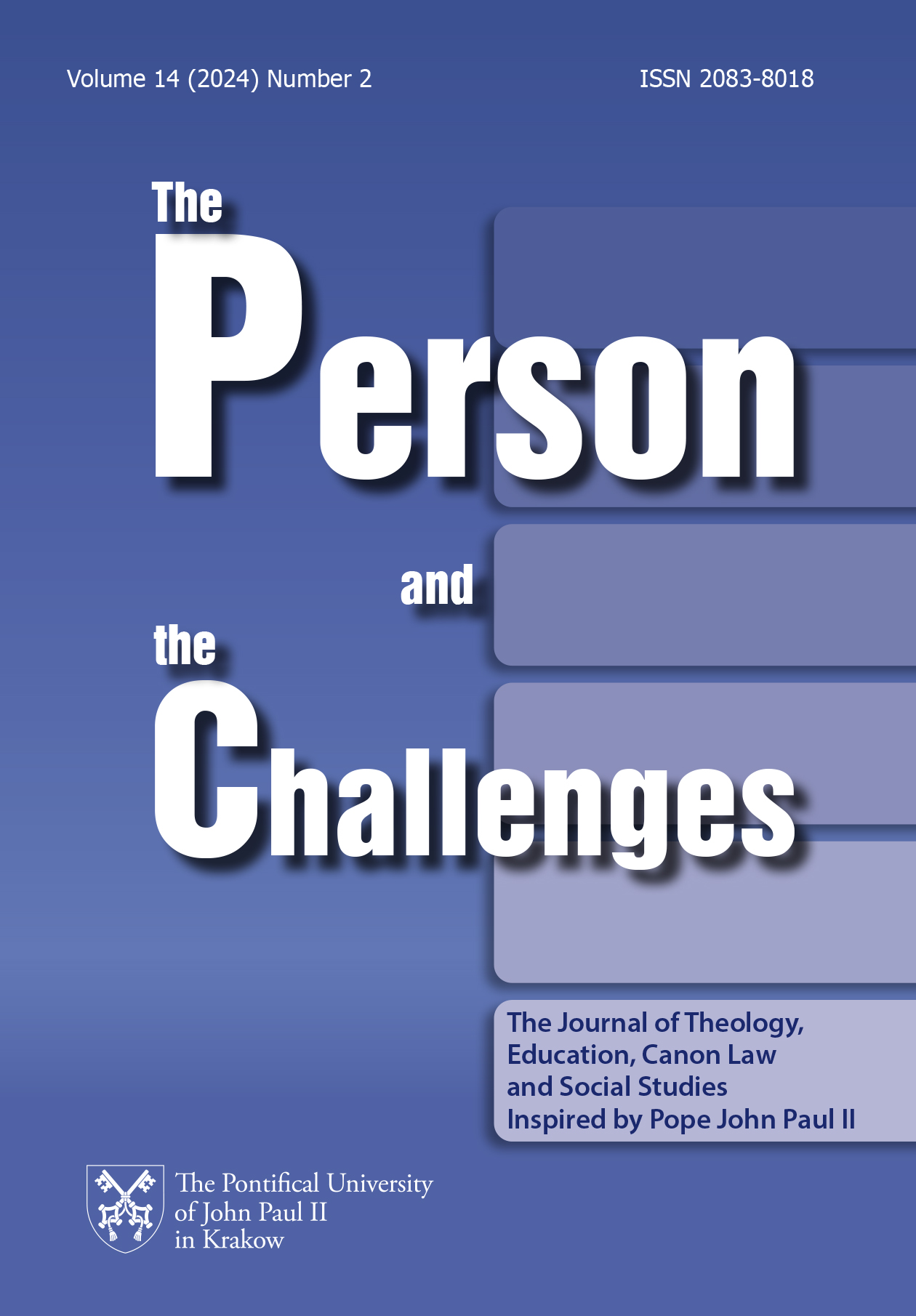The Directory for Catechesis and Family Catechesis in Slovenia
DOI:
https://doi.org/10.15633/pch.14214Keywords:
Family catechesis, the Directory for Catechesis, parents, SloveniaAbstract
The article’s author presents family catechesis as one of the possible forms of catechising children. The foundations of family catechesis are found in the New Directory for Catechesis where it is clearly stated that catechesis starts in the family. In Slovenia, the family catechesis was born “from the bottom-up”, at the request of a group of parents. In the beginning, it was an alternative option, but today it is considered equal to other forms of catechesis. Children and young people, who participate in this catechesis together with their parents, may receive the sacraments of first Holy Communion, Confession, and Confirmation. After ten years of experience, the results are positive and open new catechetic ways and possibilities. This is a new approach, a new method, for which the Directory for Catechesis says: “Catechesis does not have a single method, but is open to evaluating different methods, engaging in pedagogy and didactics and allowing itself to be guided by the Gospel necessary for recognizing the truth of human nature” (Directory for Catechesis no. 195).
References
Centa Strahovnik M., Čustva in vloga telesa v kontekstu biblijskih zgodb, »Bogoslovni vestnik« 83 (2023) Nr. 3, pp. 581–595. DOI: 10.34291/BV2023/03/Centa.
Nežič Glavica I., Družina — „skriti” potencial Cerkve, in: J. Vodičar, Vemo namreč, da ste izvoljeni! Od klerikalizacije do sinodalnosti v pastorali in katehezi, Ljubljana 2022, Teološka fakulteta Univerze v Ljubljani, pp. 49–57.
Družinksa kateheza — primer dobre prakse, https://www.druzina.si/clanek/druzinskakateheza-primeri-dobre-prakse-foto (03.05.2024).
Družinska kateheza (nov pristop k verouku) se uspešno širi tudi po Ljubljani, https://www.iskreni.net/druzinska-kateheza-nov-pristop-k-verouku-se-uspesno-siri-tudipo-ljubljani/ (03.05.2024).
Kaj je to družinska kateheza (Družinska kateheza Veseli kristjani), https://natalijapodjavorsek.splet.arnes.si/?page_id=2535 (22.03.2024).
Kraner D., L’approccio pastorale dialogico alla luce del Sinodo, »The person and the challenges« 13 (2023) Nr 1, pp. 173–187. DOI: 10.15633/pch.13111.
Kraner D., Sodobni učitelj, komunikacija in resonanca v odnosih, »Bogoslovni vestnik« 83 (2023) Nr 1, pp. 227–239. DOI: 10.34291/BV2023/01/Kraner.
Nežič Glavica I., Der Beitrag der integrativen Gestaltpädagogik nach Albert Höfer im Bereich der holistischen Religionspädagogik, »The Person and the Challenges« 9 (2019) Nr 1, pp. 205–223. DOI: 10.15633/pch.3370.
Pavel VI, Govor članom splošnega zasedanja Italijanske škofovske konference (23. 6. 1966), v: Insegnamenti di Paolo VI, IV (1967).
Platovnjak I., The Importance of Marriage Groups for Marriage and Family Life. A Survey of Our Way Marriage Groups, »Obnovljeni život« 78 (2023) Nr 4, pp. 479–492. DOI: 10.31337/oz.78.4.5.
Platovnjak, I., Družine s predšolskimi otroki potrebujejo pri svojem poslanstvu posredovanja vere več razumevanja, sprejetosti in bližine v Cerkvi na Slovenskem, »Bogoslovni vestnik« 80 (2020) Nr 2, pp. 355–370, DOI: 10.34291/BV2020/02/PlatovnjakPravilnik za katehezo.
Šegula A., Catechesis for confirmation as a pastoral challenge in Slovenia, in: J. Garmaz, A. Čondić (eds.), Challenes to religious education in contemporary society, Split 2017, Crkva u Svijetu, pp. 196–209.
Šegula A., Katehetsko področje dela v slovenskem prostoru po drugem vatikanskem koncilu, »Bogoslovni vestnik« 73 (2013) Nr 2, pp. 279–287, DOI: http://www.teof.uni-lj.si/uploads/File/BV/BV%202013%202/BV-73-2-Segula.pdf.
Snoj A. S., Katehetika — didaktična izhodišča religijskega, verskega in katehetskega pouka, Ljubljana 2003, wyd. Salve.
Stala J., Parents Catechesis: for Children, Familiy or for Adults?, »The Person and the Challenges« 13 (2023) Nr 2, pp. 37–51, DOI: https://doi.org/10.15633/pch.13203.
Stegu T., Lepota in kerigma v tehnološki dobi, »Bogoslovni vestnik« 83 (2023) Nr. 4, pp. 1024–1025. DOI: 10.34291/BV2023/04/Stegu.
Vodičar J., Holarhični model celostne resonančne pedagogike za novo katehezo, »Bogoslovni vestnik« 82 (2022) Nr 3, pp. 691–704. DOI: 10.34291/BV2022/03/Vodicar.
Downloads
Published
Issue
Section
License
Copyright (c) 2024 Andrej Šegula

This work is licensed under a Creative Commons Attribution 4.0 International License.
Authors who publish with this journal agree to the following terms:
- Authors retain the copyright and full publishing rights without restrictions, and grant the journal right of first publication with the work simultaneously licensed under a Creative Commons Attribution 4.0 International License that allows others to share the work with an acknowledgement of the work's authorship and initial publication in this journal.
- Authors are able to enter into separate, additional contractual arrangements for the non-exclusive distribution of the journal's published version of the work (e.g., post it to an institutional repository or publish it in a book), with an acknowledgement of its initial publication in this journal.
- Authors are permitted and encouraged to post their work online (e.g., in institutional repositories or on their website) prior to and during the submission process, as it can lead to productive exchanges, as well as earlier and greater citation of published work (See The Effect of Open Access).

